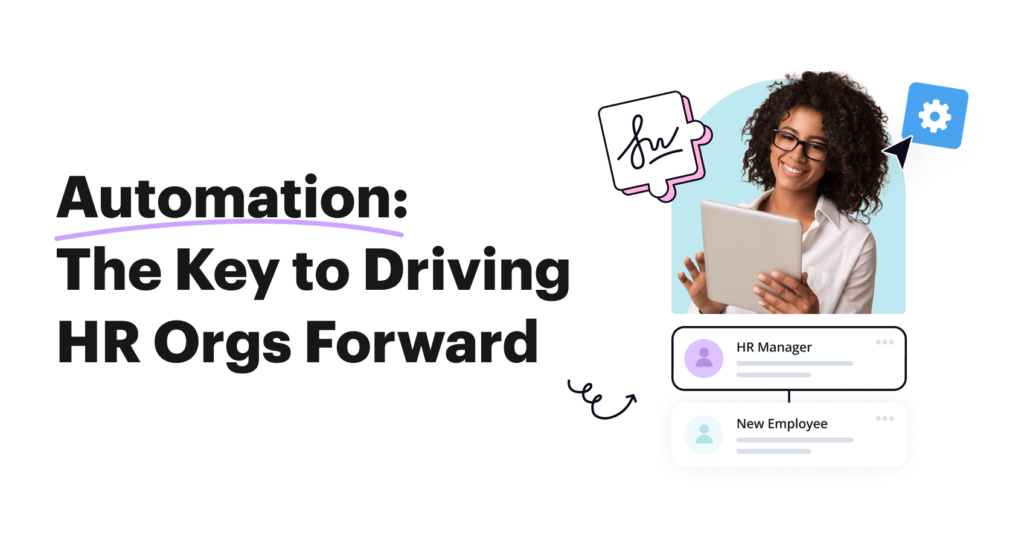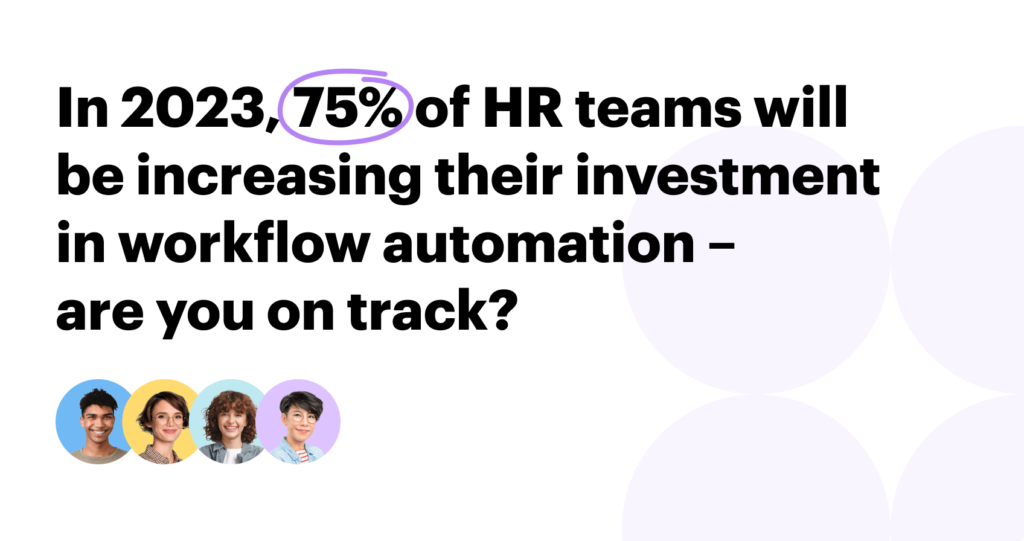
In 2023, the continued accelerated pace of digital adoption is challenging HR executives to explore the possibilities of workflow automation to maintain a competitive advantage.
HR teams spend five to twelve hours per week on manual paperwork, so it only makes sense to modernize processes and embrace automation wherever possible.
Propeller Research surveyed 355 HR managers and directors representing different industries, organization sizes, U.S. regions, ages, and educational backgrounds on behalf of airSlate.
The data indicates that HR executives are planning to increase investment in workflow automation technologies in 2023 and beyond to improve the productivity and efficiency of their organizations.
The survey also suggests how HR professionals can create growth opportunities for employees by implementing automation technology in daily processes and promoting citizen-led innovation.
With plenty of insights and statistics to review, here are the six key takeaways for HR professionals looking to invest in workflow automation in 2023.
1. There’s still a giant opportunity to automate repetitive HR tasks
According to data surveyed, HR professionals still spend an entire workday or more per week on manual paperwork. At that, only 10% of HR executives surveyed believe that at least 60% of their current processes are automated. That reveals a giant opportunity to automate manual tasks and empower HR organizations to refocus their time and energy on more productive, effective operations and generate more revenue.
2. In 2023, automation will increase where it has previously shown positive results
Since 2020, HR departments have seen a positive impact of document workflow automation on how their teams work to support larger business goals. According to data surveyed, in 2023, organizations are planning to introduce workflow automation across a number of HR processes — benefits enrollment, new hire paperwork, internal employee communications, and others — where it has previously shown positive results.

3. More small and medium-sized businesses are planning to invest in automation
One-third of small businesses are planning to increase investment in document workflow automation technologies to support their HR workflows this year. Previously, it was expensive and challenging for SMBs to prioritize automation due to the lack of resources. Larger enterprises typically have more budgets to explore various digital solutions and hire teams to implement them. Today, things are changing for smaller businesses thanks to technological innovations and easier-to-use tools. SMBs can now gain a competitive edge by implementing workflow automation in their processes and should take advantage of the opportunity to do so.
4. Automation will continue to foster citizen-led innovation
97.5% of HR professionals surveyed believe that their teams have the skill set to implement and leverage document workflow automation solutions successfully. When the COVID-19 pandemic started, employees had to master new digital technology fast to ensure business continuity. As a result, a new type of digital-ready workforce, known as citizen developers, emerged. In the coming years, citizen-led innovation will become critical to the HR industry using highly automated HR solutions and employers investing in recruiting and retaining talent.
5. HR departments prioritize low-code/no-code tools for workflow automation
Over 90% of HR professionals are looking for cost-effective workflow automation tools that improve productivity, streamline outdated processes, enable cross-functional collaboration, are easy to implement and use, and provide an enhanced employee experience. airSlate and its suite of automation solutions make it easy to go digital, even for organizations that don’t consider themselves tech-savvy. It’s easy to implement and use, so any team member can master automating HR processes as a citizen developer.
6. Automation will help HR organizations maintain a competitive advantage
One-third of organizations surveyed see no barriers to introducing no-code document workflow automation in their routine HR workflows. Yet, factors like budgetary constraints, integration issues, and technology limitations impede the process. HR organizations that take the necessary steps towards becoming automated-centric will maintain a competitive edge in the industry and forge a successful path forward.
discover how and why automation must be part of your 2023 strategy,
and learn about the tools that can help you get there.
- 1. There’s still a giant opportunity to automate repetitive HR tasks
- 2. In 2023, automation will increase where it has previously shown positive results
- 3. More small and medium-sized businesses are planning to invest in automation
- 4. Automation will continue to foster citizen-led innovation
- 5. HR departments prioritize low-code/no-code tools for workflow automation
- 6. Automation will help HR organizations maintain a competitive advantage

